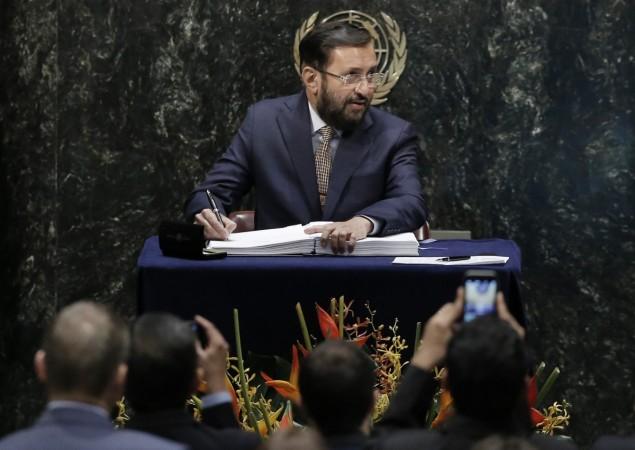
The Indian government has rejected a recent United States-based study, which claimed that the rising pollution levels in India are reducing the life-expectancy of its residents. The study published in the journal, Geophysical Research Letters was jointly conducted by the Indian Institute of Tropical Meteorology (IITM) and National Center for Atmospheric Research, Boulder, Colorado, U.S.
The study suggested that the exposure to PM2.5 (fine particulate matter of the size of 2.5 microns) is leading to the loss of 3.3 years from an average Indian's life, and nearly 6.3 years from a Delhi resident's life.
"We reject the claims made in the so-called research article that each Indian loses six years of his/her life because of pollution. The Ministry of Earth Sciences does not agree with the study and completely rejects it," Prakash Javadekar, the Minister of State of Environment, Forests and Climate Change, was quoted by the Indo-Asian News Service as saying in a statement on Wednesday.
The minister questioned the authenticity of the study findings, especially when it was not done on the basis of sampling or long-term observations.
Javadekar further said that the study is based on regional atmospheric chemistry model and statistical algorithm to construct estimates.
Sachin Ghude, the IITM scientist and lead author of the study, had earlier said that the methods used in this study rely on statistical algorithms to construct estimates about a population's response to pollution exposure using previous concrete observations on pollution and public health. The problem is that most of these observational studies have taken place in regions with comparatively low pollution levels, such as Europe or the U.S. "We don't have any epidemiological studies in India that look at the long-term effects of air pollution on mortality," Sachin said.
Javadekar, however, said that India is serious about tackling the pollution issue.
"India recognises pollution as a major problem and we are tackling it very seriously. But there are other pollutants also that are harmful to health. Ozone is a pollutant that has an adverse impact on life and which is predominantly present in California. Nitrous Oxide( NOx) is another pollutant present much more in Mexico, UAE and China, than in India," he said, according to IANS.
The minister further said that over the last 10 years, no concrete efforts were made to tackle the pollution problem due to which it has reached threatening levels.
"Sulphur Oxides( Sox) is another pollutant that is serious. Every pollutant adversely affects health. So, on different pollutants, countries have different experiences and different status. But we recognise that in India, because of the neglect over the last 10 years, the pollution problem has become serious, particularly in cities," the minister said.
According to the World Health Organisation, the PM 2.5 levels of Delhi were reported to be 153 micrograms per cubic metre (µg/m³), which is three times the pollution level in Beijing, China, and 10 times the average pollution levels in New York.
















